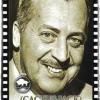-
Posts
10,971 -
Joined
-
Last visited
-
Days Won
6
Content Type
Profiles
Forums
Events
Articles
Everything posted by Fatty Liver
-

BC Lions @ SaskJones Implosions (preseason game)
Fatty Liver replied to IC Khari's topic in Blue Bomber Discussion
I think Mr. "Somewhere in Canada" is perfectly aware of what goes on in Riderfans and is probably an enthusiastic participant. -
That's two import kickers, I'm wracking my brain but I can't recall that being done before.
-
Yes, so he officially "made the club from the tub."
-
I agree, I think it's a mistake not to have Flanders on the roster as he outperformed all other backs on the ground in both pre-season games and that includes Harris. They gave the backup job to Lochard without a single carry in either pre-season game, meanwhile Flanders will sit on the PR until Harris is injured or he rots.
-
First pro snaps, what do you expect?
-
I can't recall Castillo ever punting, when they brought him in last year it was to take over FG's.
-
So the D-line looks to be Westerman, Cummings, Shologan and Shayon Green as starters with Jake Thomas and Corney in rotation. Only other DL player on the roster is Sam Scott and I have no idea which position he plays.
-
Yah, not sure how Kris Adams makes the club when he never made it out of the tub. Also who the hell is Sam Scott penciled in for DL?
-
I don't know, it seems like overkill to keep a backup for Medlock on the roster, especially since Castillo is an import. Not only do they have 2 import kickers on the roster, neither is known as an elite punter.
-
Whaaaa??? I'd think. he should have been tradeable,
-
Link don't work.
-
Hopefully Butcher going back to school has been discussed and the two parties agree. I've read no reports confirming or denying that this is the plan. If I was finished with U and an employer told me to go back for one more year I would be none too pleased. In a case like this it depends largely on where Butcher stands in his academic achievements, I suppose he may be short on his degree and is anxious to finish it off which would be smart, or it could be that a cut, is just a cut. Hopefully O'Shea touches on this in his next presser. If it is a flat out cut cause "you're just not good enough for us and never will be", I'm shaking my head in disbelief at their utter blindness. Butcher is a rare physical specimen and a Natl., not something that comes along very often.
-

Around The League Off Season Discussion
Fatty Liver replied to Noeller's topic in Blue Bomber Discussion
Ottawa-TiCat game currently being broadcast on TiCats site. http://ticats.ca/live-stream -

Around The League Off Season Discussion
Fatty Liver replied to Noeller's topic in Blue Bomber Discussion
The answer is "what is Saskatchewan math" for 5 points Alex. -
Would love to hear Wylie on the Coach's Show dealing with the call in crowd. They bite back.
-
Can that be done seamlessly so that no sticky fingers nab him?
-

Around The League Off Season Discussion
Fatty Liver replied to Noeller's topic in Blue Bomber Discussion
Sorry, I should have specified Sask. farmers. Their wheat's no good and their women are dirty. -
FB should see plenty of playing time this year helping out with the pass protection, Cronk seems to more noticeable than Normand.
-
Apparently opponent was Louie Richardson.
-

Around The League Off Season Discussion
Fatty Liver replied to Noeller's topic in Blue Bomber Discussion
96+ years of failure should be bulldozed and paved over toot sweet. Edit: Bonus if the stands are full of weeping Rider fans when they do so. -

Around The League Off Season Discussion
Fatty Liver replied to Noeller's topic in Blue Bomber Discussion
Funny, over on the Riders forum, delusion is running wild, there is some consternation whether the last game ever played at Taylor Field will be their last regular season home game or whether it will be their "home playoff date". Apparently it's important that they say goodbye to the structure in some personal way. I can't purge the image of thousands of farmers in ball-caps waving "bye-bye" to a dilapidated structure as they slowly walk back to their cars burbling with tears in their eyes. You just can't make this **** up. -
...and was grateful that he did, he said his career would have only lasted a couple of years had he stuck to playing D-line.
-
True enough, but teams won't continually bring the house against a QB they fear, as it leaves their back end vulnerable to exploitation, Having Harris in the backfield should also give them pause for thought, Willy just has to have the patience to take what is given and play cat and mouse with them all game long if necessary. It works for Ricky Ray.
-
The book on Wpg. has already been written, pressure the QB and they melt. Hopefully making good use of Harris, Smith and Dressler to counteract blitzes a new chapter can be written. We shall see.
-
AR 15 sales rocket after Orlando massacre. 'We normally sell two a day, today we are selling up to 15 an hour': Georgia gun shop reports soaring AR 15 sales while Pennsylvania dealer has sold 15,000 since Orlando massacre http://www.dailymail.co.uk/news/article-3641508/We-normally-sell-two-day-today-selling-15-hour-Georgia-gun-shop-reports-soaring-AR-15-sales-Pennsylvania-dealer-sold-15-000-Orlando-massacre.html#ixzz4Blrvkrbs

